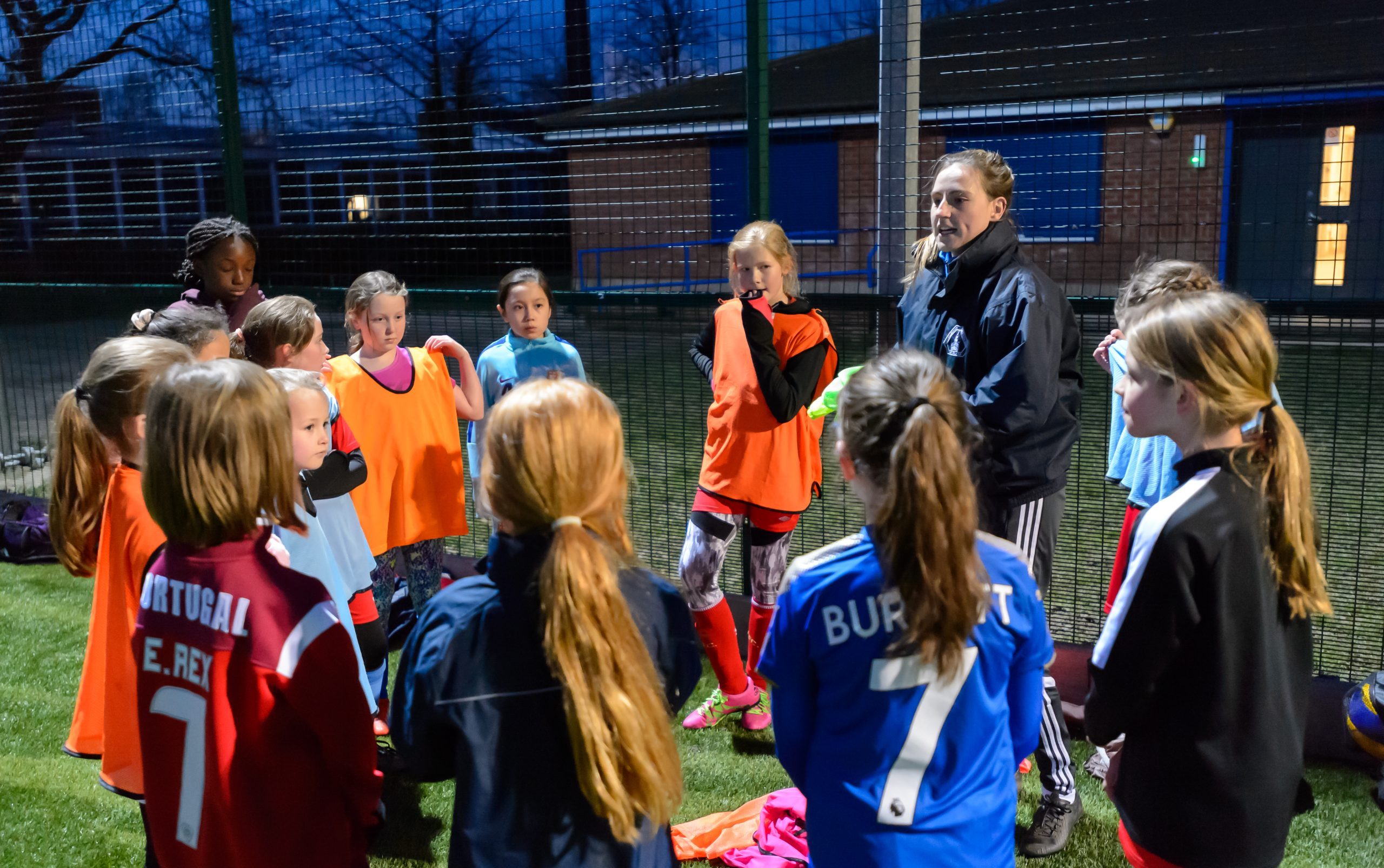
Gender Budgeting
Money spent on sport and physical activity is not shared fairly between men and women. We’re calling on sport, policymakers and the government to focus on gender budgeting and deliver fair funding for women’s sport.
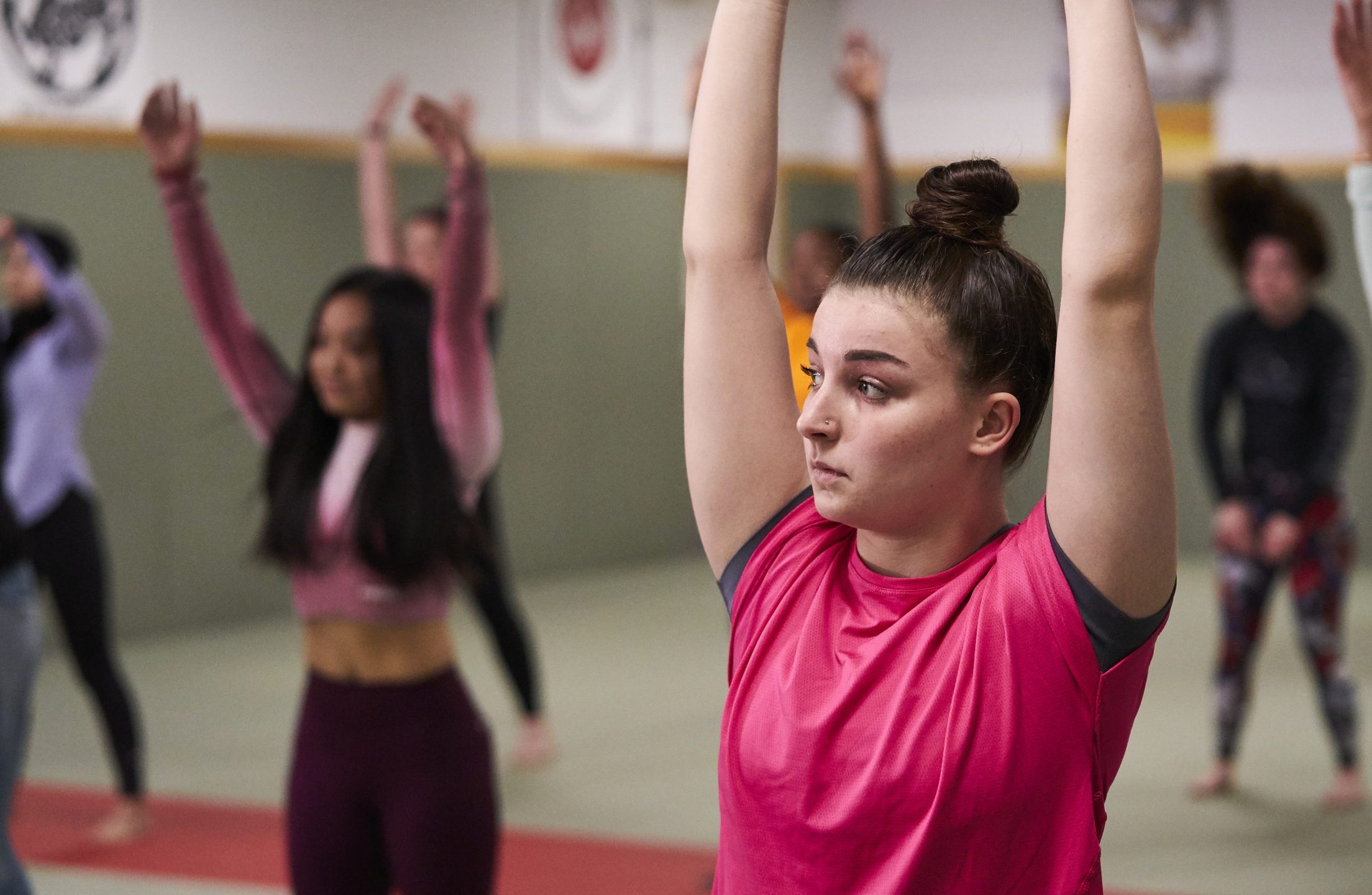
What is misogyny?
Misogyny is prejudice, malice and/or contempt for women. Sadly, it is rife in our society. Literalists cling to the word’s origins and insist that misogyny means hatred of women, but it means more than that. The word has evolved to encompass the more widely held attitudes and behaviours that relegate women to a subordinate position and maintain the power imbalance which characterises male/female relations. It is these attitudes – and the conduct which flows from them – which prevent us achieving genuine equality. – Baroness Kennedy of the Shaws
This definition, from Member of the House of Lords and legal scholar Baroness Kennedy of the Shaws, encompasses the full reality of misogyny, both today and throughout history. Misogyny is different from other forms of ‘group based’ discrimination: normally these beliefs (such as racism and homophobia) are aimed at groups who are a minority in society, whereas women are a majority.
Misogyny is a belief system with a long history. From the ancient world to the present day, examples of misogyny are many, varied and visible in all aspects of society. For women today, it is still ever present in big ways and small. It is certainly evident in sport.
If we show emotions, we’re called dramatic… if we dream of equal opportunity, delusional. When we stand for something, we’re unhinged. When we’re too good, there’s something wrong with us. And if we get angry, we’re hysterical, irrational or just being crazy. – Serena Williams
If we show emotions, we’re called dramatic... if we dream of equal opportunity, delusional.Serena Williams
Misogyny in sport is as varied and as deeply embedded as in any other area of life, perhaps more so. Fundamentally, misogyny is about power; as soon as sport became more organised and pivotal to status, women began to be excluded. Misogyny is the foundation on which many of the barriers that prevent women and girls being active are built. It underpins the history of active exclusion of women from many sports and the undervaluing of women’s sport today.
The role of woman in the world remains as it always has been. She is above all a companion to man, the future mother of the family and should be brought up with such a fate in mind. – Pierre de Coubertin, Co-founder and President of the International Olympic Committee (1896-1925)
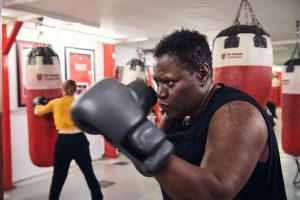 Misogyny is the reason why there are so few female leaders in sport. It is behind the gendered stereotypes that tell girls and women, from such an early age, that sport isn’t for them. These stereotypes also mean women as well as men are brought up to conform to the existing power balance; women as well as men can treat women badly and promote the status quo. Although women can be infected by misogyny, our distinct physiology creates a powerful bind and the most extreme expressions of misogyny will almost exclusively be the behaviours of men. Sexualised language, vicious commentary and sexual abuse, both physical and online, continue to harm, objectify and undermine women in sport.
Misogyny is the reason why there are so few female leaders in sport. It is behind the gendered stereotypes that tell girls and women, from such an early age, that sport isn’t for them. These stereotypes also mean women as well as men are brought up to conform to the existing power balance; women as well as men can treat women badly and promote the status quo. Although women can be infected by misogyny, our distinct physiology creates a powerful bind and the most extreme expressions of misogyny will almost exclusively be the behaviours of men. Sexualised language, vicious commentary and sexual abuse, both physical and online, continue to harm, objectify and undermine women in sport.
We can’t close the gender play gap if we don’t stamp out misogyny in sport and in wider society.
What does the law say – and what should it say?
Unlike other types of discrimination, misogyny is not legally classed as a hate crime in any of the home nations (despite leadership shown at local levels, for example in Nottinghamshire). Classification of an offence as a hate crime can lead to longer sentences, and means racist or homophobic comments can be reported through the criminal justice system. Yet misogyny continues to go unchallenged. It is only once misogyny escalates to the level of sexual assault or rape that there is any recourse to the law.
Similarly, organisational policies reflect this distinction. Employees have no structure within which to report misogyny, where they witness or experience it. As we see all too frequently in sport, organisations are institutionally reluctant to address any reports they do receive, even cases which involve physical harassment or violence.
The current system of anti-discrimination laws is aimed at protecting minorities. Women are not a minority. For this reason, Women in Sport believes that there should be standalone legislation that criminalises misogyny. The Scottish Government’s proposed new offences related to misogyny offers a model we believe could work. We urge the other governments in the UK to introduce misogyny legislation.
Why is misogyny a particular issue in sport?
 Given that misogyny is about upholding the primary status of men, and that from a very early age boys are taught that their status is interlinked with their sporting success, it is hardly surprising that misogyny is rife in sport. Tackling discrimination in sport will help tackle it in wider society.
Given that misogyny is about upholding the primary status of men, and that from a very early age boys are taught that their status is interlinked with their sporting success, it is hardly surprising that misogyny is rife in sport. Tackling discrimination in sport will help tackle it in wider society.
Gender stereotypes are pervasive in society. Sport is strongly tied to notions of masculinity and can be made to feel essential to the identity of boys. At the same time, ideas of girls not being sporty are embedded at a very young age, into girls and boys, alongside ideas of girls needing to be careful, delicate and ‘girly’. These stereotypes are still going unchallenged in many sporting contexts, from primary school PE all the way to elite sport at the very top level.
There are other reasons why the very nature of sport creates an environment where misogyny can thrive:
The ultimate effect of all this is that we see fewer women and girls playing sport, working in sport and leading in sport. We see less respect for elite women’s sport, less media coverage and less investment. More women in sport are the victims of abuse (we believe there should be an independent regulator for sport to tackle this).
The very fact that society doesn’t value sport for women and girls in the same way as for boys is rooted in misogyny. After all, the origin of the word ‘sport’ relates to freedom from responsibility. Women are missing out its joy and its anxiety-abating and bone-building benefits, and there are very serious health consequences, such as the high rates of self-harm in teenage girls, autoimmune diseases such as arthritis, and osteoporosis in older women.
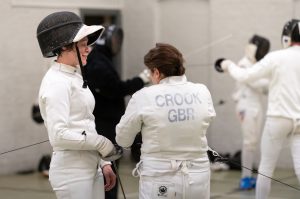 What can sport do to tackle misogyny?
What can sport do to tackle misogyny?
There are concrete and proactive steps that sports bodies can take to make sure sport is leading the fight against misogyny.
Anti-misogyny policies and training would ensure that every organisation is playing their part. They help employees and employers to understand what misogyny means and looks like within the context of their organisation and outline the environment in which women deserve to work and participate. They define what is acceptable in some key areas, weeding out gendered or offensive language. And, crucially, they set out clear reporting mechanisms for both victims and witnesses of misogyny and how penalties for breaches of the policy will be enforced.
We are developing a template Anti-misogyny Policy and supporting training package designed with the sport sector in mind. For more information about how we can support you, please get in touch.
 Gender balanced leadership is vital if we want to systematically tackle misogyny in sport. We need to see more women moving into coaching and leadership roles, particularly the roles of CEO, Chair of the Board and Performance Director which are so important in setting the culture of a sport. Our work shows that a gender balanced top team in an organisation creates the most positive, productive and welcoming culture overall.
Gender balanced leadership is vital if we want to systematically tackle misogyny in sport. We need to see more women moving into coaching and leadership roles, particularly the roles of CEO, Chair of the Board and Performance Director which are so important in setting the culture of a sport. Our work shows that a gender balanced top team in an organisation creates the most positive, productive and welcoming culture overall.
Male allies and agents of change. Neither of these will be affective if misogyny continues to be viewed as a ‘woman’s problem’. Sport is currently a very male dominated space, and it is essential that men understand that stamping out misogyny requires them to challenge and change their biases, actions and behaviour. Male allies and agents of change are vital in changing the culture of sport.
Our Culture Healthcheck tool gives organisations a view of the culture in their organisation, focussing specifically on the parameters that affect gender equality such as feeling heard, promotion opportunities, flexible working and pay.
Treating as equal those who are not yet equal furthers inequality.Baroness Kennedy of the Shaws
In Conclusion
Sport has been too slow to change, too slow to face up to the realities of the misogyny women face. All too often this has led to sport facing a crisis because of the hesitance of both individual sports and the sector as a whole. Taking proactive steps such as the ones outlined here will go some way to finally ending this cycle and taking misogyny up at the root.
Women have been treated as second-class citizens in sport for too long. Misogyny has too often been seen as our problem to fix, or else not a problem at all (‘it’s just banter’). It’s well past time sport recognised its misogyny problem and finally began to tackle it.

Money spent on sport and physical activity is not shared fairly between men and women. We’re calling on sport, policymakers and the government to focus on gender budgeting and deliver fair funding for women’s sport.
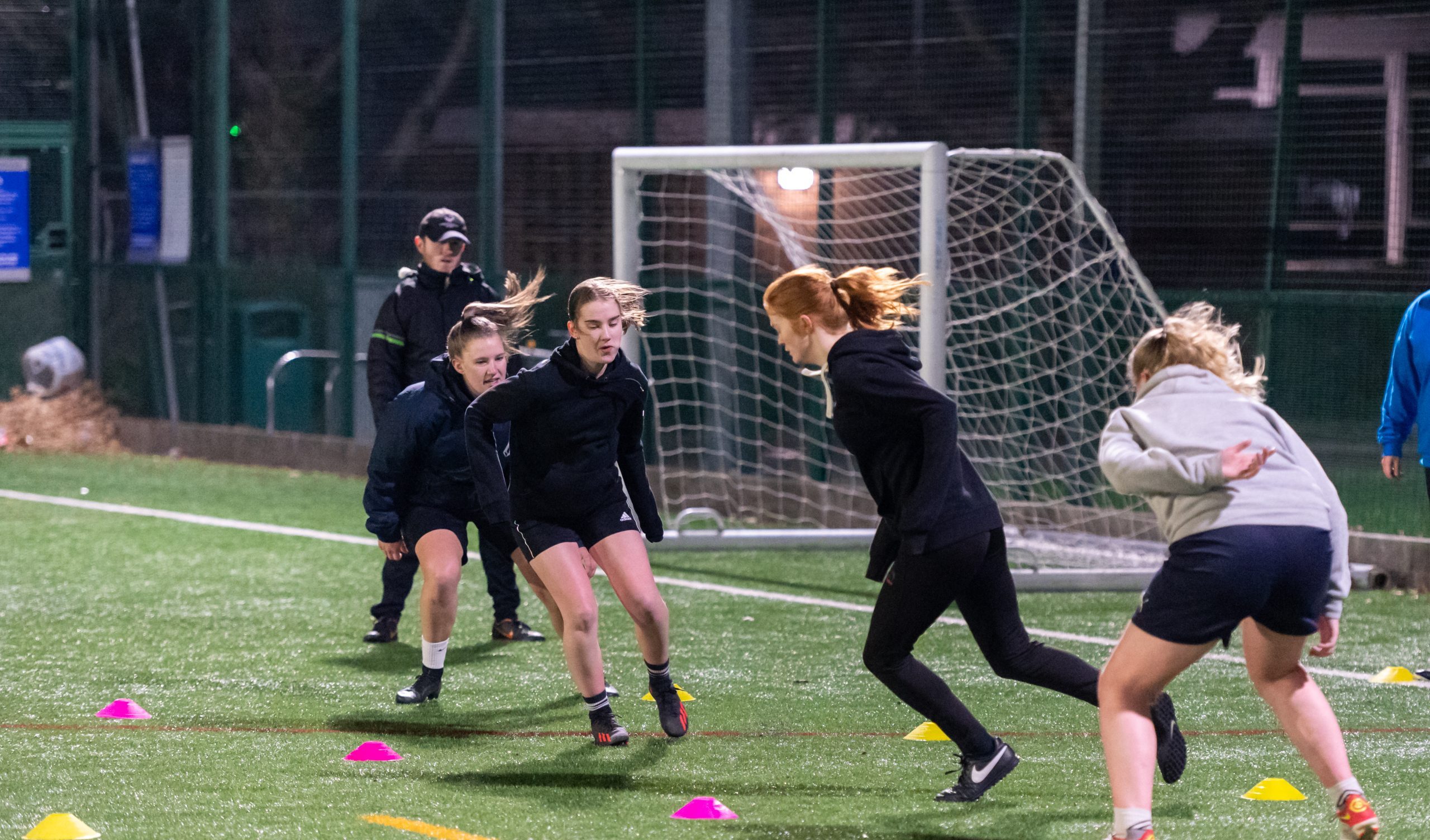
Sport is inherently physical, so the different physiologies of the sexes matter. Read about our stance on transgender inclusion in sport.